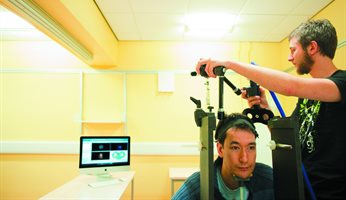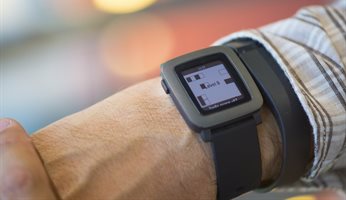Transcranial magnetic stimulation for depression

Researchers are investigating whether an innovative new treatment that targets areas of the brain with magnetic pulses could offer hope to people who suffer from depression which has been resistant to other treatments.
The BRIGhTMIND study will be testing the effectiveness of a new approach using magnetic stimulation applied via the scalp.
BRIGhTMIND is researching two treatments: Repetitive Transcranial Magnetic Stimulation (rTMS) and a new type of TMS called Theta-burst Stimulation (TBS). It is hoped that the TBS may enable people to experience the benefits of treatment for longer than rTMS.
Experts:
Richard Morriss, Professor of Psychiatry and Community Mental Health
Institute of Mental Health
Nottingham Biomedical Research Centre
The EME study, which started in 2018, examined the use of theta-burst stiumulation (TBS) to find out whether it could help those people with depression for whom other treatments have proved ineffective.
The study, funded with more than £1.8 million from the National Institute for Health Research and Medical Research Council as part of the Nottingham Biomedical Research Centre.
Read the Press Release from the project launch in 2018
Wrist stimulation to relieve Tourette Syndrome

Delivering electrical or vibration stimulation to the wrist can significantly reduce the amount and severity of tics experienced by individuals with Tourette Syndrome (TS), giving new hope for effective treatments.
Repetitive trains of electrical pulse stimulation to the median nerve (MNS) at the wrist entrains rhythmic electrical brain activity that is associated with the suppression of movements.
They found that rhythmic MNS is sufficient to substantially reduce tic frequency and tic intensity, and the urge-to-tic, in individuals with TS. Their findings have been published in Current Biology.
Read the Press Release - June 2020
Experts:
Stephen Jackson, Professor of Cognitive Neuroscience
Nottingham Biomedical Research Centre
MindTech will soon be beginning a feasibility trial with patients of a new intervention for Tourette Syndrome (TS): Smartwatch Vibration Therapy, funded by Tourettes Action.
In initial investigations, the technique shows promise in reducing tics and tic-related urge in young people living with TS.
The work is led by MindTech and the University of Nottingham's Division of Psychiatry and Applied Psychology and will take place in collaboration with the Child and Adolescent Mental Health Services (CAMHS) Developmental Neuropsychiatry and Tourette’s Clinic based at QMC.
The software, by MindTech’s Dr. Michael Craven, is designed to run on consumer smartwatches.
Experts:
Mike Craven, Senior Research Fellow
MindTech